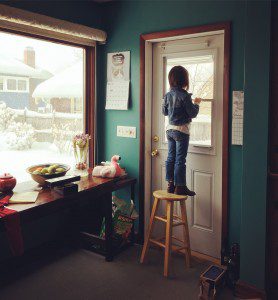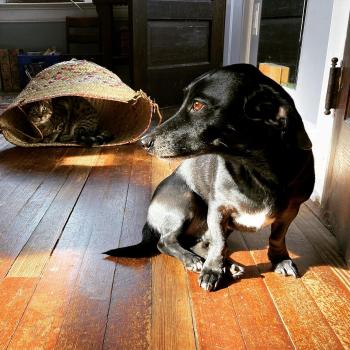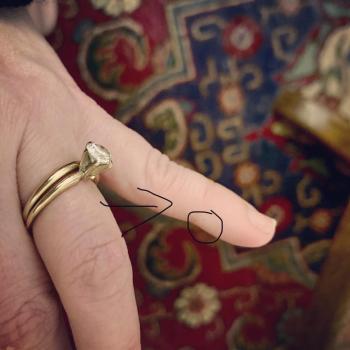This is really brilliant. Meant to read it weeks ago and just kept forgetting. Now that I’ve remembered, I’m going to go dig up Frog and Toad and read them all again, because it’s been a few months.
And truly, this must have been the unconscious bedrock of my parenting style from the get go, though I didn’t know it. Life is difficult, please try to stop crying—or something like that. Or, to put it another way, I need to bear to be around my children, especially when they are all grown up, so they will have to learn self-control, competence, and occasional disappointment, even though those lessons are painful for all of us.
Also, the piece is brilliant because it is true that almost every children’s book I’ve come across written in the last ten years is utterly ghastly—utterly. There’s some awful thing called Fancy Nancy that I have repeatedly thrown away, and also anything with a unicorn or a rainbow. The constant celebrations for nothing is absolutely a weariness to the flesh, and even worse the vocal chords, when you are trying to read the wretched thing out loud, before you throw it down in a rage.
Anyway, it’s important for children to see you suffer, and to suffer themselves, within reason. Of course there is a tidal wave of suffering, for some children, that is absolutely unacceptable. But in the ordinary course of things, when life is fine and there is food on the table and abuse and horror aren’t lurking around every corner, it is good for children to have to wait for things, to struggle with some task, to have to swallow down some injustice, to be interrupted (especially as they are so good at that themselves), and to generally have to deal with the irritating complexity of life.
My favorite is when I don’t manage to go food shopping on the Usual Day, because of being busy or wanting to wait for a check to clear, and announcing that there is plenty of food in the house, but it’s all in the pantry and stuffed in the back of the fridge, and no there’s no milk, so you’ll have to just figure it out. Everyone looks up in horror and astonishment. Everyone begins to moan and complain. No, seriously, I say, I’m not going to the store. Figure it out. Finish off the bag of apples or open a tin of sardines. My gosh, you’d think it was the apocalypse. Except it’s not, because everyone is still alive the next morning.
On the other hand, ordinary suffering should be joined both to competence (which only comes through suffering) and relative freedom. So—as others have said—the child should do everything that he can do. If he can get his own glass of water, he should, you should never get it for him. If she can perch on a stool and make a packet of ramen, she should. If they can clean the kitchen, they will (or maybe I will become enraged and do it myself, dammit). Freedom—especially around food—can be the celebratory outcome of the various small sufferings of daily existence.
I say food—and, I should admit, I didn’t know this beforehand, I just finally had enough of cooking and cleaning up three meals a day—because balancing between a nice meal that everyone has together and that everyone has to be kind about no matter what on one hand, and the freedom to wander around the kitchen and try your hand at something familiar or new on the other, has produced children who enjoy food and who know how to feed themselves.
And goodness, knowing how to feed yourself is the cornerstone of survival. Being able to feel hunger and judge that it would be good to eat something sensible, stopping and thinking about what that thing should be, working through the steps to get it and eat it, is a basic human skill that lots and lots of us lack. I mean, I’m 40 something and I still melt down with hunger, reaching not for a boiled egg and a mango, but the three week old chocolate moldering in the bottom of my purse. I am not often able to go from point A to point B in the matter of food. One minute I’m fine. The next I’m starving and hysterical and it’s already too late. My children (through no fore-site of my own) don’t do this. Hunger is an occasion for rejoicing. They bustle into the kitchen and assemble suppers and breakfasts for themselves, and sit around and talk to each other. Then I come in two hours later and scream at them to come back and clean up—because that part is not interesting at all.
On that note, I will suffer myself to go do whatever it is I’m supposed to. Have a nice day.













